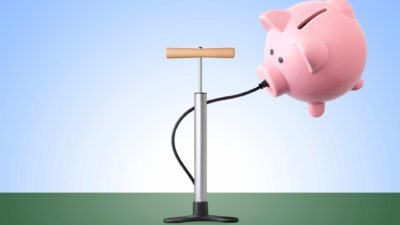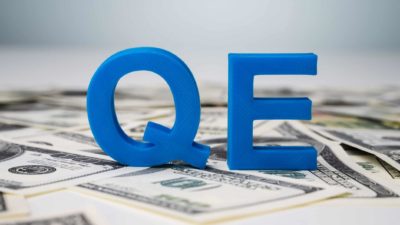You might have heard talk of the 'impending recession' over the course of this year so far. There have been many events that have gotten investors worried about the future of global growth.
Everything from the ups and downs of the US–China trade war, the ongoing train wreck that is Brexit, as well as the movements of the US Federal Reserve in first raising interest rates before subsequently cutting heavily have all been spooking markets over the course of this year. The appreciation of the gold price has also been grabbing headlines, as has the movements of the US 'yield curve' and its various inversions – long considered a 'canary in the coal mine'.
Underpinning all of this is of course the fact that the world hasn't seen a significant downtown since the GFC almost 11 years ago. The US is now in its longest bull run in history – which naturally makes investors more and more nervous the longer it continues.
Now I am not saying that the world will see a recession next year (or even the year after). Like any other person, this writer has no clue what will happen to the global economy at any given point in the future. Recessions are unpleasant, but history tells us they are also inevitable at some point. So it always pays to be prepared and ready for anything – and I do think that the length of the current bull market means we should be treading with some caution.
So here are some ways that you can insulate your ASX investing portfolio against a future recession, whether that comes in 2020, 2021, or by Christmas.
Holding cash
Speaking in the short term, cash is indeed king in the sense that it is the safest asset to hold in tough times. Dedicating a portion of your portfolio to cash means that you are forfeiting some returns, but in exchange you have access to a liquid pool of capital that will not only insulate your portfolio against a recession, but also give you some ammunition to buy shares of companies that might be on sale in a bear market.
There is no magic number, but I personally think a 10–30% allocation is a good bandwidth to aim for. Depending on your own levels of optimism, you could even go higher, but bear in mind that cash is likely losing you money in real terms in a bank account these days due to low interest rates and inflation.
Using bonds
While the era of low interest rates we now live in has reduced the potency of holding bonds as 'insurance' in your portfolio (as is traditionally recommended), I still think fixed-interest investments are a viable way to add defensive balance to your stocks.
Bonds typically rise in value when interest rates are lowered, so it's likely we have seen the lion's share of returns you can get from capital appreciation in the bond market. But bonds are still viewed as something of a 'safe haven', so demand is still likely to spike if the stock market runs into trouble. Depending how closely your views on bonds align with mine, a small allocation to bonds or a bond ETF like Vanguard Fixed Interest Index Fund (ASX: VAF) could play a role in protecting your portfolio against a recession.
Buying gold
The yellow metal has long been viewed as the ultimate 'safe' store of value in investing. It has been coveted by humans since the dawn of time as a source of wealth and today its 'physicality' as an asset underpins much of its desirability as a hedge against other 'paper' assets like stocks and bonds. Gold has done nothing but steadily climb in value in 2019 so far after a few dormant years (almost matching stocks in YTD returns).
Gold's time to shine (no pun intended) has always been during times of recession. For example, gold climbed from around US$730 an ounce to nearly US$2,000 an ounce between 2007 and 2011 as the fallout from the GFC together with the European sovereign debt crisis was playing on investors' minds.
Gold has also been viewed as a great way to hedge against inflation, which is why many famous investors like Ray Dalio recommend a 5–10% exposure to gold in this era of low interest rates and currency wars.
These days, you don't have to buy physical gold bullion – gold miners like Newcrest Mining Limited (ASX: NCM) or even gold ETFs like ETFS Physical Gold ETF (ASX: GOLD) both provide easy access to gold, without you having to buy a safe.
Holding dividend shares
Last but certainly not least are dividend-paying shares. Dividends are cash payments paid to the owners of the company (shareholders) and often form a significant chunk of a stock's overall returns. If a company's earning base is reasonably strong, it can continue to pay its shareholders a dividend even in a recession, forming a protective cushion for your portfolio.
Defensive dividend shares like Transurban Group (ASX: TCL) and Sydney Airport Holdings Pty Ltd (ASX: SYD) are today priced at a significant premium because of a perceived immunity to a recession, but finding some other companies with a strong moat and low payout ratio could prove very beneficial to your portfolio if tough times do hit.
Listed investment companies (LICs) like the Australian Foundation Investment Co. Ltd (ASX: AFI) can take this a step further and hold cash in reserve to pay out during an earnings drought. AFIC's shareholders wouldn't have even noticed the GFC unless they saw the newspaper headlines, because their dividends didn't drop an inch.
Foolish takeaway
There you have it, 4 ways you can protect your ASX share portfolio in the event of a 2020 recession. Through diversifying across a variety of different assets in your portfolio, you're using what Harry Markowitz (one of the founders of modern portfolio theory) calls 'the only free lunch in investing' to protect against any downturn.
By diversifying and having a think about what your assets might do if tough times do hit, you can be ready when a recession inevitably comes our way.






